Ronnie James Dio was one of metal’s all-time great singers, appearing on landmark albums by Rainbow, Black Sabbath and his eponymous band Dio. The latter’s career couldn’t have got off to a better start with the towering Holy Diver, establishing Ronnie as a 80s solo start. In 2012, two years after his death, the singer’s former Dio bandmates Vinny Appice and Jimmy Bain looked back at the solo albums that sealed Ronnie James Dio’s place in the metal pantheon.

Few musicians ever get the chance to be part of a genuinely classic album. But in the case of the late Ronnie James Dio, history was made – he was involved with three: each incredible and truly influential, and perhaps most amazingly, each with a different band.
Firstly, there was Rainbow’s seminal 1976 album, Rising. Then came Heaven And Hell in 1980 with Black Sabbath. And finally, Dio’s immense 1983 debut, Holy Diver. That album, together with follow-ups The Last In Line (1984) and Sacred Heart (1985), are regarded as Dio’s definitive solo works, with most fans and critics agreeing that the band were at their best during this golden period.
But Dio wouldn’t have had a solo career were in not for all began after a fall-out between Ronnie and his Black Sabbath bandmates Tony Iommi and Geezer Butler over the mixing of 1982’s Live Evil. While the album was being mixed, Iommi and Butler were accused by Dio of turning down the vocals. The fact is that the pair would be in the studio at different times to the singer, and they in turn were convinced that Dio was cranking up his vocals. As a result, there was a falling out, and, as the iconic vocalist explained, he was effectively fired from the band.
“I got a call from Geezer, which basically told me I was sacked,” Dio stated. “But in a way that was so positive, because it meant I was free at last to do things my way.”
Sabbath drummer Vinny Appice still denies that Dio was fired from the band, claiming, “It was Ronnie’s own decision to leave. He did it for business and personal reasons. Tony and Geezer wanted me to stay on, but Ronnie also asked if I would like to team up with him, and that was the option I chose.”
However, the fledgling band didn’t exactly start off with a plethora of new material. In fact, it was quite the opposite.
“We’d been working on getting the live album ready in Sabbath, so we weren’t in writing mode at all,” admitted Dio. “I wasn’t even thinking about doing anything outside of Sabbath, until I got the call from Geezer. I certainly wasn’t holding back any songs from the band, that’s not my way. So, when Vinny and I got together, I quickly wrote two songs, Holy Diver and Don’t Talk To Strangers.”
Vinny also recollects how the two had a natural rapport. “We got along very well during the Heaven And Hell tour [when Vinny took over in Sabbath from original Sabbath sticksman Bill Ward],” the drummer adds to Ronnie’s sentiment. “Ronnie already had a solo deal in place back then, and there was talk of an all-star Dio solo record being recorded, with a load of friends playing on it. But when Sabbath turned south, Ronnie just decided to form his own band, hence Dio started.”
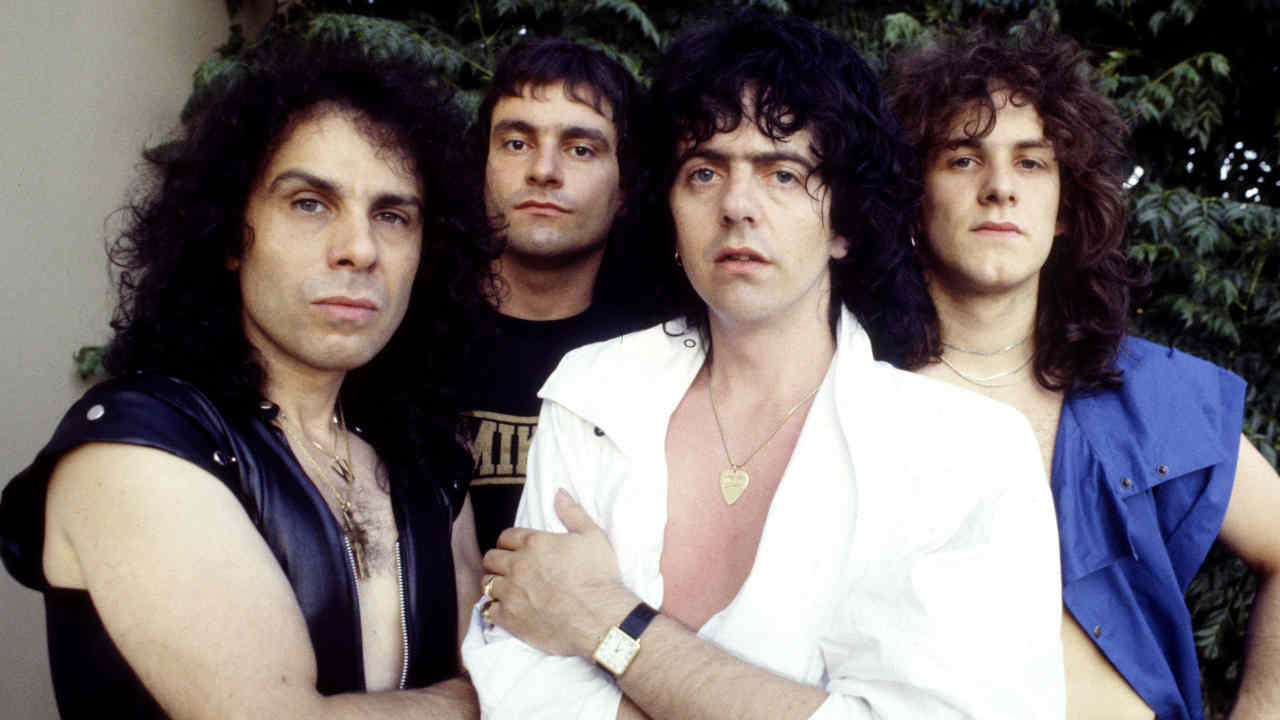
With Dio himself on guitar, a demo was recorded of the two tracks to get the right guitarist in place. Although, as the singer himself recalled, this was to prove difficult, as when you’ve worked with both Ritchie Blackmore and Tony Iommi, you inevitably set your standards very high.
“We spent time in London going to clubs looking for the right person,” explained Ronnie, “but we couldn’t find anyone suitable. Then, almost as a last resort, I called Jimmy Bain.” Ronnie and Jimmy Bain had worked together in Rainbow, and, as the latter recalls now, there was someone he felt was up to the challenge.
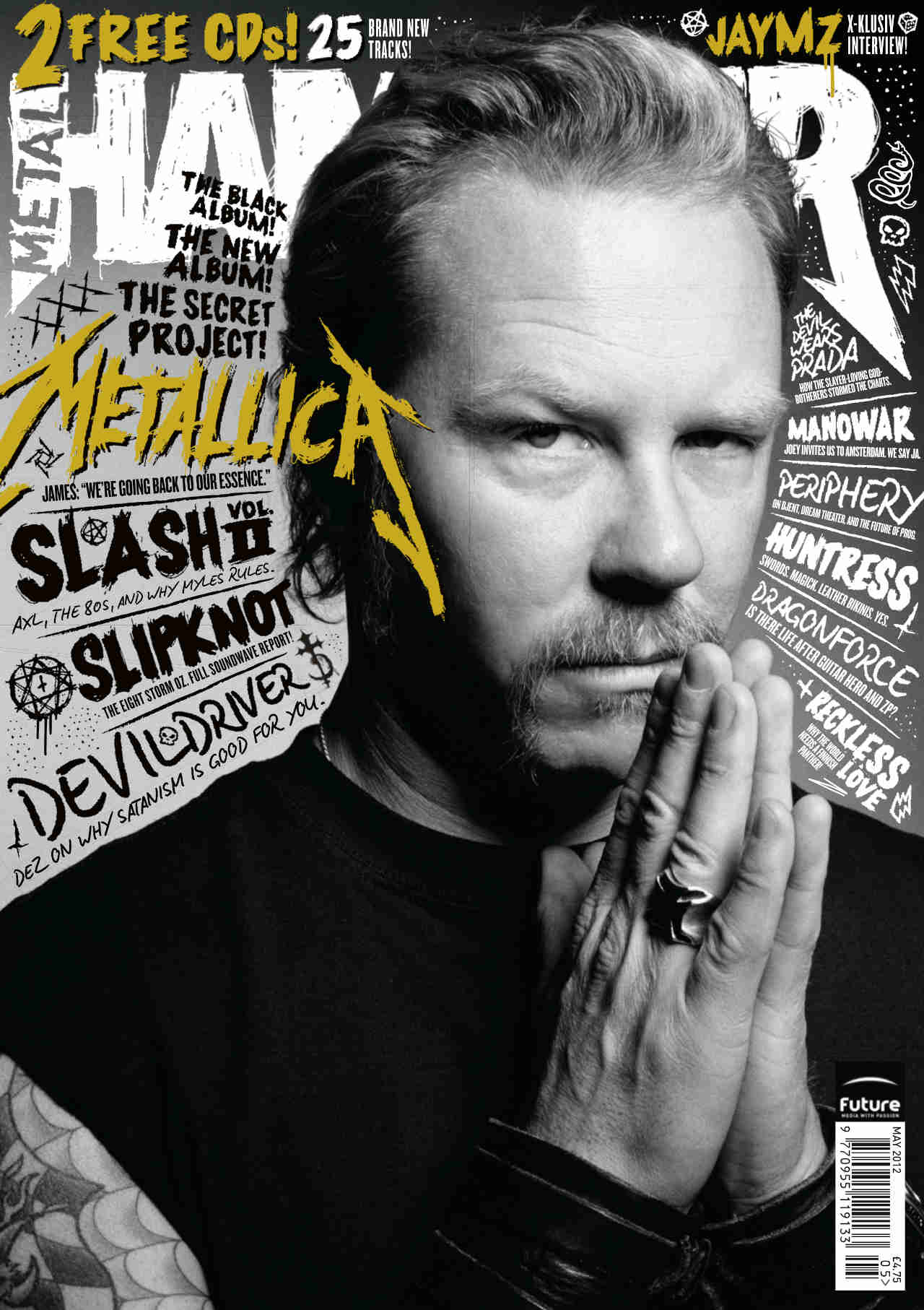
“I got a call from Ronnie, letting me know Vinnie and himself had just left Sabbath and wanted two Brits to form a new group,” he recalls. “I suggested myself and Vivian Campbell, whom I’d seen when his band Sweet Savage supported Wild Horses [one of Jimmy’s post-Rainbow bands] on an Irish tour.
“Ronnie and Vinnie were flying to the UK in a few days, but I had no idea how to get in touch with Viv. This is where it gets wacky. I was about to leave on tour with [Thin Lizzy frontman] Phil Lynott as the Greedy Bastards. I went to Dublin for a couple of rehearsals, and it turned out that Viv’s band was booked into the same rehearsal studios as us. They were there in the morning, and Phil’s band were there in the afternoon, so I got to chat to Viv and we all met up a couple of days later in London at John Henry’s Rehearsal Studios. After about 10 minutes it was smiles all round.”
Vinny admits that Vivian wasn’t the only name in the frame for the job. “There were a few other guitarists we considered,” he reveals. “One of them was Jake E Lee [who was in Ratt at the time and would go on to join Ozzy’s band], but we passed on him. Ronnie and I flew to London and went to clubs to check players out; using the newpaper listings, we went out blindly, and even once [ended up watching] a reggae band!”
Dio revealed that John Sykes, then with the Tygers Of Pan Tang but a future member of both Thin Lizzy and Whitesnake, was also suggested. But Vivian had more appeal. And as far as Vinny is concerned, there was never any doubt over who should be the bassist. “No other bassist was even mentioned by Ronnie,” he asserts. “Jimmy was very quickly brought into the band, and it was always taken as inevitable that we should work together.”
Taking the name of Dio was seen as logical by all bandmembers, with Ronnie noting that “it wasn’t an ego thing on my part; I had a certain reputation and it just made sense.”The singer also decided that he should produce the band’s debut album.
“I had learnt so much from working with Martin Birch on Rainbow and Sabbath albums, also with Roger Glover in my Elf days,” he noted. “I had a self-belief and confidence and knew that, as long as I had the right engineer, then I’d be fine.”
Angelo Aruci, who did the live sound for the band, was chosen to be the studio engineer, and Ronnie was convinced this would allow all the bandmembers to shine. “I wanted this to sound like a band, and not to be all about me. When you have huge talents around you, why would you stifle them?”
Jimmy believes that recording the Holy Diver album was a very smooth process: “It was easy, actually,” he confirms. “We had already spent a while working on the song across the street from Sound City Studios [in LA], where we recorded the album. The other thing was that we didn’t have problems with each other’s hang-ups. That would come later!”
However, there were one or two problems in the studio, not the least caused by Dio’s own antipathy to one song.
“I thought Rainbow In The Dark was too poppy for what I was trying to do, and I was mindful of the fact that people knew me for heavier stuff,” stated the singer nearer the time – an amazing admission given the immense popularity of that song. “So, I was ready to cut it from the album, but the others guys persuaded me to keep it on. They were right.”
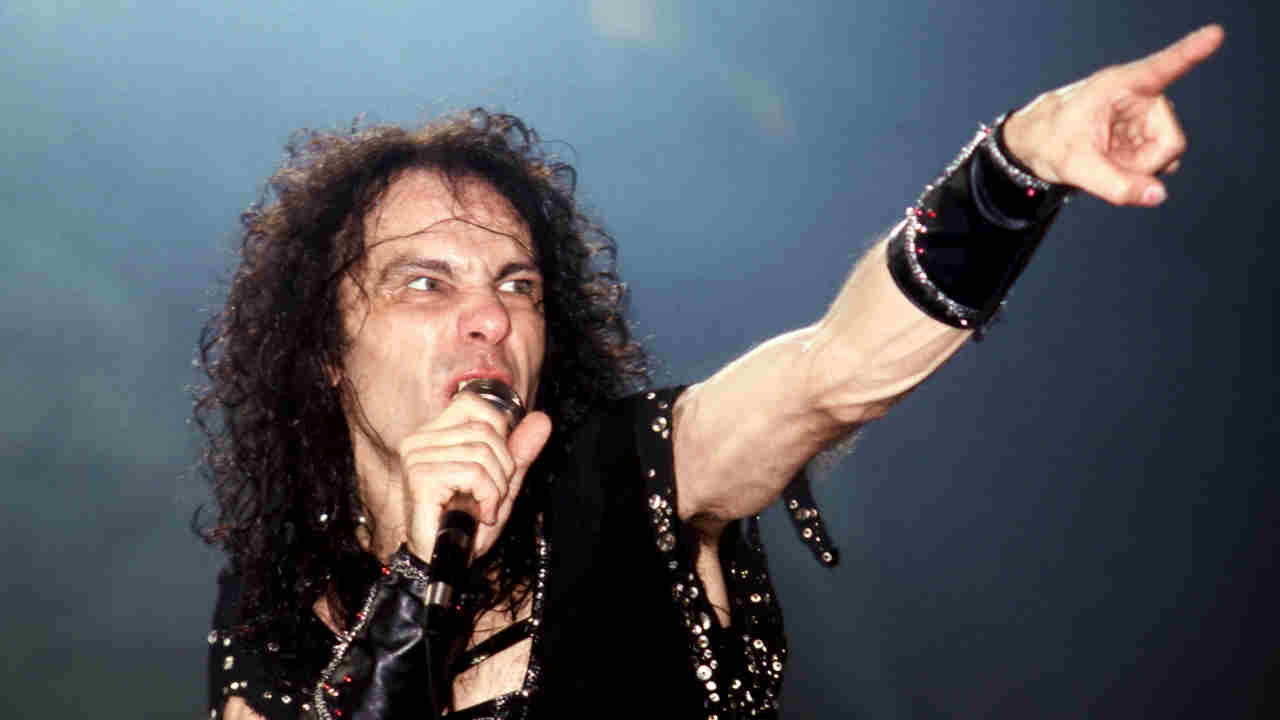
In recent years, there has been controversy surrounding the songs on Holy Diver, with some even insisting that many of the ideas came from Sweet Savage and that Dio had used these as the basis for the album, without the Irish NWOBHM mob’s permission. This is vehemently denied by Jimmy and Vincent.
“Look, there were a few that came from Sweet Savage songs, and there were a couple of ideas taken from Wild Horses,” says Jimmy now. “But not whole songs, as has been suggested. I do remember that Rainbow In The Dark came from the Sweet Savage song called Bottle Of Wine. Ronnie gave it a new melody and lyrics, I came up with the keyboard part. So it wasn’t just lifted from Sweet Savage.”
Vinny also believes that Stand Up And Shout used an idea that was originated by Sweet Savage, but doesn’t recall wholesale ransacking that band’s song catalogue; “Apart from Stand Up And Shout, maybe one other song had a Sweet Savage connection. But that was it.”
Released in May 1983, Holy Diver got to number 13 in the UK charts and number 56 in America, where it would eventually sell over a million copies. It was a solid start for the band, who cemented their British reputation by playing at the Monsters Of Rock Festival in 1983, on a bill headlined by Whitesnake.
Following up Holy Diver was a challenge for all involved, and by this time the band included keyboard player Claude Schnell. Ronnie had played keyboards on the debut, but now there was a bona fide player completing the lineup. For Dio himself, the goal for the second album was to improve on what had been achieved so far.
“I am not one of those people who is ever so satisfied with an album, to the point where I feel nothing can be improved,” he once stated. “To me, when you make a record that others appreciate, then it should act as a spur for taking everything even further. You should treasure the acclaim of others as a privilege, not a right. And it must be the opportunity to do even better that drives you on.”
Vinny now looks back at what was to become The Last In Line with considered enthusiasm. “We did that in Colorado at Caribou Ranch, and we all lived on site at the studio,” he says. “It was very cool but not as loose as things had been on Holy Diver. Ronnie was more in control on this album [as producer], and we only had five or six songs written when we arrived. We wrote We Rock up there, right in the studio.
“Actually it was easier to make this album in some ways,” he continues. “But in others, it wasn’t. It was easier, because we knew each other better. On a musical level, we had to be more cautious not to repeat ideas from the previous record, so we proceeded with caution.”
Vinny has nothing but praise for the way Dio acted as producer, believing he brought out a lot that others might have missed. “Ronnie was brilliant,” he exclaims. “He could hear where the song was going before it got there. He heard lots of melodies and individual parts within the song. He was great with the sounds of each instrument and the recordings of these.”
“We all had a lot more to offer as song- writers,” Jimmy notes, “and the fact that we now knew each other so much better was obviously to everyone’s advantage.”
The Last In Line was released in July 1984. Building on what had gone before, this time the album not only broke into the UK Top Five, making it to number four (which would be a career high for the band), but also reaching number 23 in the US. Again, this would prove to be a career high Stateside, selling over a million copies there.
Dio were going from strength to strength, but there was about to be a major rift in the camp. In 1985, Dio had been the moving force behind Hear ’N Aid and the single Stars, the aim being to raise funds to help alleviate the famine in Africa. Vivian had been involved in the project, but by the time the band started work on third album Sacred Heart, Ronnie and Vivian were not seeing eye to eye.
“In my opinion, Vivian no longer had the commitment to the band he had in the early days,” the singer would reveal shortly before he died. “He was – and remains – an excellent guitarist. I never lost sight of how good he was as a musician, but as a person… well, he was no longer on the same page as the rest of us. That annoyed me hugely. When you’ve got four people really stretching and straining to do their very best, and one person who’s clearly holding back, it makes for an unhappy camp.”
These problems perhaps overshadowed the recording of Sacred Heart, and Jimmy feels that Ronnie made a major mistake in letting Campbell go so soon after this album was released.
“Viv did nothing that warranted his removal from the band in what is still considered to be a cowardly way,” the bassist says. “For me, firing Viv was the biggest mistake of Ronnie’s career. The problem could’ve easily been resolved if there had been a will to do so from Ronnie and Wendy [Dio, the band’s manager and Ronnie’s wife].”
Vinny also regrets Vivian’s departure, although he is a little more diplomatic in his comments on the situation.
“Viv wasn’t happy with the business part of the band, and musically wanted to pursue something else. If he had been happy with the business end of it, he probably would’ve stayed and made a few more records with us. We had a successful, great band with Viv, and it was unfortunate to change ingredients.”
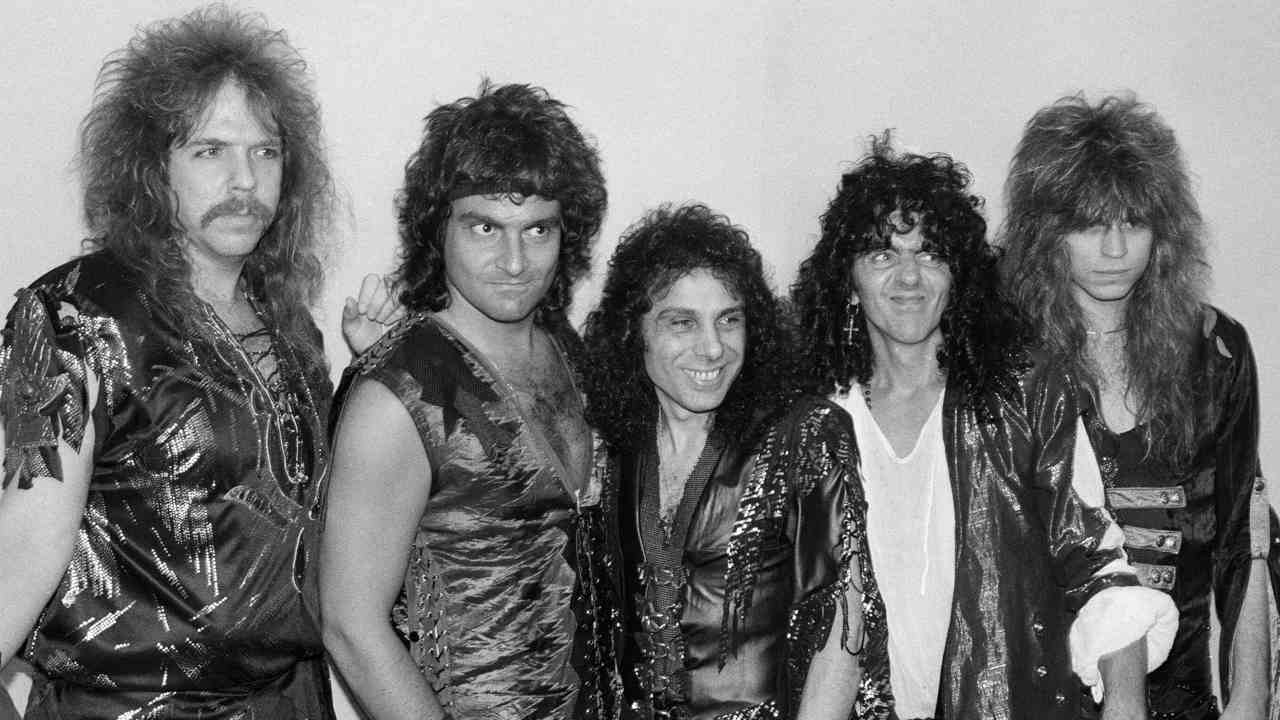
For their third album, Dio returned to recording in Los Angeles, this time at Rumbo Studios, with Ronnie again taking up the producer’s role – and the main man was very happy with the way things turned out.
“Musically, we’ve certainly progressed. We’re all very proud of what we’ve done,” he said at the time. “To me, it’s taken what we’ve achieved on the first two albums to a new level.”
“I don’t think the songs were as heavy as on the previous two records,” comments Vinny on Sacred Heart. “But it still was a great record.”
Jimmy Bain, however, feels that Dio were in decline by the time they reached Sacred Heart. “Dio should have gotten better with each album, but what happened was the opposite. The production was watered down with all the keyboards, the songs were not as good because it became harder to satisfy Ronnie’s need to complicate arrangement and structure.”
However, the album reached number 29 in the US, where it sold over half-a-million copies, and mirrored The Last In Line’s success in the UK by reaching number four in the album charts.
The stage set for the Sacred Heart tour was the most spectacular yet for Dio, featuring a mechanised dragon affectionately known as Denzil. But it was the end of the road for what most people would regard as the definitive Dio lineup; Vivian had gone by the culmination of the tour, replaced by Craig Goldy. The former is featured on the live part of the 1986 EP Intermission, with Craig playing guitar for new studio track Time To Burn..
However, when Vivian left the band, most people believe that their best days were behind them. It’s not that they released a succession of poor albums, but such had been the standard set on those first three, a dip was inevitable.
From 1987 until 2004, they put out seven studio more albums, as well as three live records between 1998 and 2006. However, despite occasionally capturing the magic of those early years, somehow Dio were never the same again. A succession of lineup changes meant that there was little or no continuity, and things were further shaken up when Ronnie took time out to rejoin Black Sabbath for the 1992 Dehumanizer album and tour.
Plans for a follow-up to 2000’s well-received Magica were put on hold when Heaven & Hell formed in 2006. There were definite commitments to doing at least one new Dio album by 2010, when Ronnie was diagnosed cancer, but the band did manage to record a new song, Electra, which suggested that a return to prime form was to be expected on the next full-length.
Yet, the patchiness of what followed Sacred Heart shouldn’t be allowed to detract from the fact that for the first part of the 1980s Dio were among the finest hard rock bands around. Their legacy is indelible, and the reissues of those early albums underline the fact that the band were very special; capable of standing alongside any others of the time, yet also individual enough to ensure that the first three albums were uncompromising representations of the huge talents involved.
Perhaps the last word belongs with Ronnie himself
“I don’t want to play with people lesser than me,” he once stated. “People gravitate towards success and they say, ‘I want to play with Ronnie Dio. Maybe I’ll learn something, maybe it’ll be a step up for me.’ Whatever it may be, whatever the reason, I’ve always been able to surround myself with usually the top guys.
“The musicians are always great musicians, something I always wanted to be and aspire to be, so that was my inspiration. You have to surround yourself with the same talent that you have, and I think that it’s been easier for me because I’ve been blessed with that talent and have had success.”
Originally published in Metal Hammer issue 230, April 2012. Jimmy Bain passed away in 2016
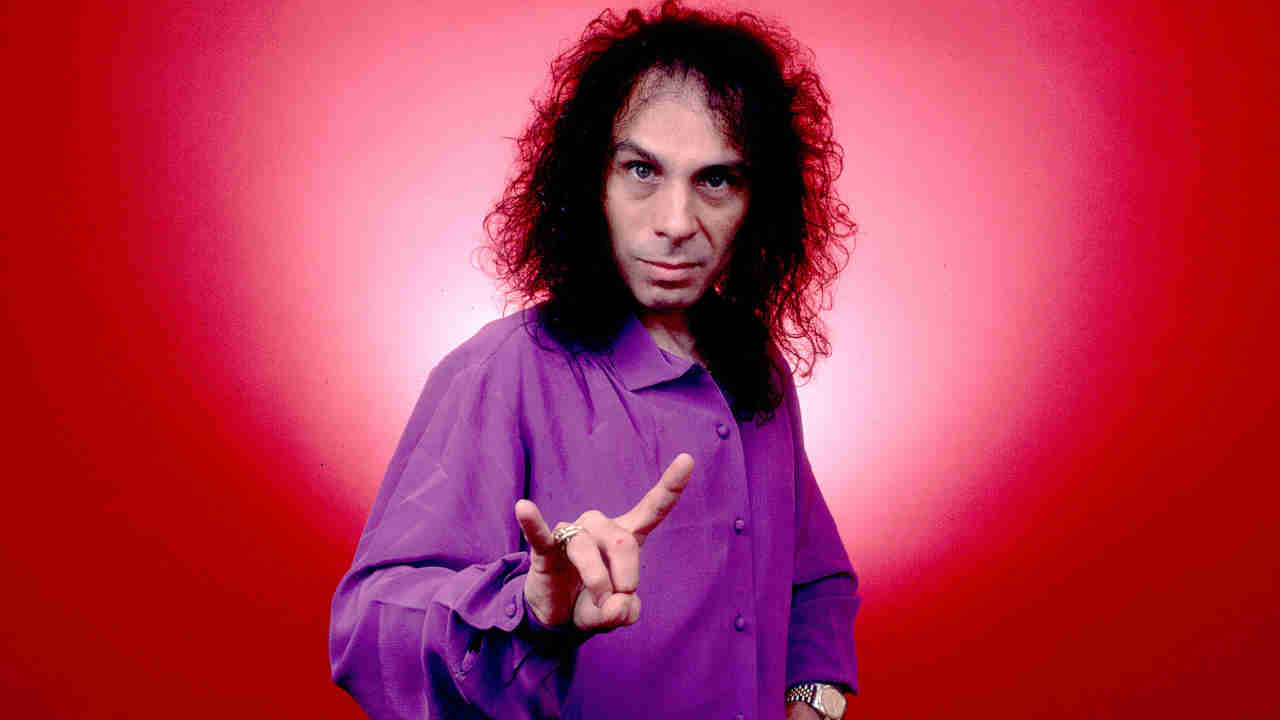
![Dio - Holy Diver (Official Music Video) [HD] - YouTube](https://img.youtube.com/vi/2lvs2FzF64o/maxresdefault.jpg)
